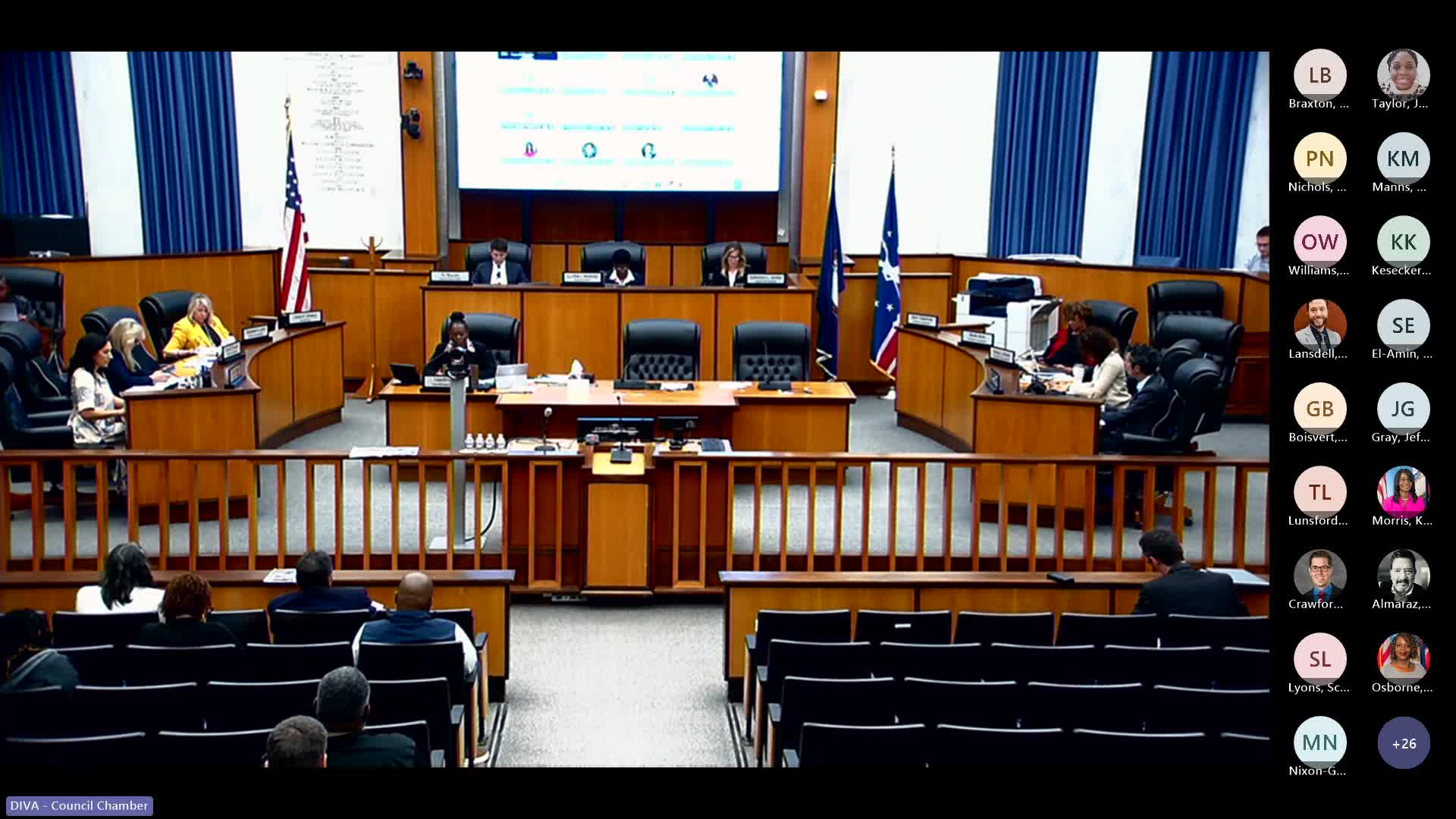Richmond mayor and Office of Community Wealth Building report drop in city poverty rate; officials focus on housing, workforce and regional coordination
Get AI-powered insights, summaries, and transcripts
Subscribe
Summary
Mayor Raula and the Office of Community Wealth Building presented the office's annual impact report, citing reductions in overall and child poverty since 2015 and outlining priorities including public housing redevelopment, concentrated workforce supports, policy audits and regional coordination.
Mayor Raula presented the Office of Community Wealth Building—s annual report to Richmond City Council, saying the city—s most complete recent data shows about 41,000 people living in poverty in 2023, a 21% decline from a 2015 baseline. The presentation highlighted a drop in the city—s overall poverty rate from roughly 25.5% in 2015 to 18.8% in 2023 and a fall in children living in poverty from about 15,000 to 11,000.
The report, produced by the Office of Community Wealth Building (OCWB), framed the reductions as the product of multiple factors and city efforts. "Over the period since OCWB's inception in 2014, they have been responsible for 2,420 job placements," Mayor Raula said, adding that the average wage for placements rose from just under $10 an hour in FY16 to nearly $20 an hour in FY25. The mayor also cited YouthWorks RVA and other OCWB programs as contributors to the city—s progress.
The nut graf: city and OCWB officials said the decline matters because it reflects coordinated investments in workforce training, youth employment and other supports, but they warned that housing cost increases and regional migration complicate interpretation. "We have seen a decrease in poverty rates, not just here in the city, but really across the entire region," the mayor said, noting population growth and wage gains as factors that also affect poverty-rate calculations.
Council members and OCWB staff focused on next steps. Capricia Spellman, director of the Office of Community Wealth Building, said the office is building a results-management function and expanding coordination across city departments and regional partners. "The coordination piece is exactly what we're working on," Spellman said, noting that the office will bring on a results-management position and is working with deputy CAOs and portfolio leads to plug gaps across departments.
OCWB outlined six strategic priorities, including: public housing redevelopment within the housing affordability strategy; concentrating workforce supports on smaller cohorts who need more intensive training and wraparound services; conducting a policy audit of city policies to identify barriers to economic inclusion; strengthening collective-impact coordination across city departments and nonprofits; building data dashboards for shared outcomes; and aligning workforce pipelines with major economic projects such as the Diamond District. The mayor said a mayoral action plan will be released the following day to hold the administration accountable to outcome measures.
Officials described specific program outcomes over the most recent fiscal year and the decade since OCWB—s creation. Among the figures presented: 2,420 job placements since 2014; 110 participants supported to receive high-school diplomas through the Dream Academy; 379 participants at the Richmond Adult Technical Center; more than 1,100 trained through the Community College Workforce Alliance; 703 paid YouthWorks RVA summer placements in the most recent summer (2,100 total summer work experiences since 2019); Opportunity Youth (ages 16—24 not in school or work) falling from 12% at baseline to 5.3%; and in FY25, 90 individuals entered new jobs with an average wage of $19.46 per hour. OCWB also reported 123 participants in financial empowerment classes, 262 in homeownership education and 20 in entrepreneurship classes.
The presentation highlighted the Richmond Resilience Initiative, a guaranteed-income pilot that provides $500 per month for two years to families who earn too much for other benefits but still face a benefits cliff. Officials described this program as one tool among many to smooth income for families in transition.
Councilwoman Robertson and other council members praised OCWB—s staff and Citizen Advisory Board, and Robertson urged closer engagement between the board and OCWB staff to shape strategy and metrics. Councilmember Gibson and Councilmember Jones asked about separating the statistical impact of OCWB—s work from broader regional and demographic changes; Mayor Raula acknowledged the difficulty of longitudinal tracking without large, dedicated studies and pointed to regional collaborations such as RVA Rising as part of the response.
OCWB staff and council members discussed next steps for coordination, data-sharing and program alignment. Spellman said the administration—s support has allowed OCWB to expand its coordination role, and she pointed to existing partnerships with the Office of Sustainability, Economic Development and the Office of Minority Business Development as early examples. The office plans targeted efforts to link training participants to housing opportunities and childcare supports as part of a seamless pathway out of poverty.
Ending note: officials said the report will appear in written form for council and that OCWB will continue to refine outcomes tracking and cross-agency coordination.
